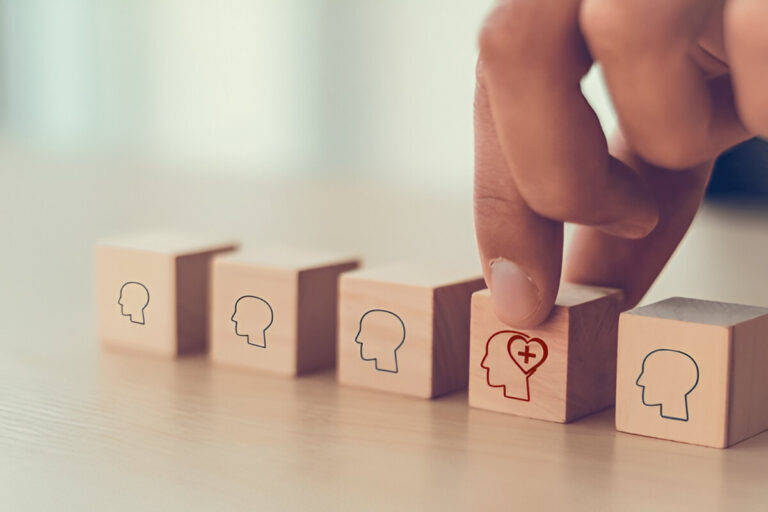There’s really no way around living in today’s world, which can sometimes feel like tiptoeing through an emotional minefield. With doomful news cycles, the hell of social media, demanding jobs, and toxic relationships, is it any surprise that anxiety and depression are at all-time highs? But here’s the good news: your peace can be protected. You don’t have to live in a cave or become a monk, just filter out the nonsense and cultivate your inner calm. Let’s dive into the article and learn how to Protect Your Mental Health in a Toxic World.
Table of Contents
ToggleUnderstand the Source of the Poison
Social Media and Comparing Yourself 24/7
It’s so easy to see Instagram and forget that it’s not real life. Scroll long enough and you start to think everyone else has it all figured out : perfect bodies, perfect” jobs, perfect lives. It’s toxic. Take breaks. Unfollow the ones that make you feel less than.
News Overload and the Culture of Fear
Headlines scream at us 24/7. And they’re rarely good. It’s important to stay informed, but reading about bad news all the time can exhaust your mental capital. Try to check the news once a day or during a specific time period.
Poisonous Relationships and Emotional Vampires
Some are inspirational; others will drain the life out of you. Learn to recognize emotional vampires who constantly complain, criticize, or guilt you. They could be relatives, pals, or colleagues.
Workplace Stress and Burnout
Overtime Deadlines Office politics. The grind never stops unless you make it. Unaddressed work stress is a highway to burnout. Establish boundaries; take your breaks seriously.
Building a Mental Armor
Setting Healthy Boundaries
You are well within your rights to safeguard your space and energy. Establish clear boundaries around what you will tolerate and what you will not. Say no to what sucks you dry and yes to what feeds you.
Saying No Without Feeling Guilty
No is a complete sentence. You don’t owe explanations. Guilt can be a sign you’ve put your own needs behind others’.
Up with regular digital detoxes
Put your phone down. Step away from the screen. Disconnecting helps you clear your head and reconnect with what really matters.
The Power of Self-Care
Daily Routines That Cultivate Your Mind
Even small gestures like stretching first thing in the morning, drinking tea alone or journaling can serve as rituals to anchor you.
Mindfulness and Meditation for Clarity in Meditation
It can even be as little as five minutes a day. Meditation quiets the noise and trains you to focus on the moment, free of yesterday’s and tomorrow’s worries.
Quality of Sleep is Essential
Sleep is not a luxury. It is a necessity. Bad sleep can mess with your feelings, memory, and decision-making. Protect that bedtime like it’s sacred.
Nutrition: Feeding Your Body and Brain
Eating for Mental Strength
Whole foods = whole mind. Leafy greens, berries, fatty fish, and nuts feed your brain and improve your mood.
Keeping Your Body Hydrated and Nourished
The symptoms of dehydration can easily look like anxiety. Drink water regularly. Crannog: Is this how you feel about water, too? Add lemon, cucumber, mint etc,?
Physical Activity as a Brain Reset
Exercise, recall, is not only for six-pack abs; it releases endorphins, the feel-good chemicals. Even just a good walk can supercharge your overall mood.
Managing Toxic Relationships
Spotting Red Flags Early
If someone is a constant drain on you, makes you second-guess yourself , or controls you, it’s toxic. Trust your gut.
How to Cut Ties Respectfully
There’s no drama necessary to exit. You can let it fade out, rebut in an honest discussion, or extricate yourself entirely. It’s good to choose your mental health.
Cultivating a Positive Habitat
Find your people who can make you laugh, listen to you, and cheer you on. Their energy is contagious.
Creating a Safe Mental Space
Your Home as Mental Health Sanctuary
Declutter, add plants, and light a candle. Your space should be a sanctuary, not a source of stress.
Curate Your Digital Surroundings
Mute, block, unfollow, whatever it takes to make your online world supportive and uplifting.
Protecting Your Energy
Understanding Emotional Labor
It’s exhausting to be everyone’s therapist, caretaker, or problem-solver. Allow yourself to take a step back.
We can’t afford to be exposed to too much negativity
Don’t gossip, get into online battles, or indulge in chronic complaining. These things gnaw at your peace.
Seeking Support Without Shame
Therapy and Counseling
Therapy isn’t just for “serious” problems. It’s a vehicle for growth, for healing, for better self-understanding.
The Importance of Community and Support Groups
Having a conversation with someone who gets it, who truly gets it, can be life-changing. You’re not alone.
Cultivating Resilience
Expressing Thanks and Positivity
Gratitude rewires your brain. Jot down three good things each day. Teach your mind to look for the silver lining.
Developing Your Emotional Intelligence Profile
Know your triggers. Learn how to react, NOT respond. Emotional intelligence is a superpower.
Saying No to Hustle Culture
Slowing Down in a Culture Obsessed With Productivity
Rest isn’t laziness. It’s essential. Burnout is the result of grinding, not winning.
The Power of Rest and ‘Doing Nothing’
Let yourself be. Lie down. Stare at the ceiling. Breathe. Rest is not something you have to earn; it’s your right.
Mental Health and Media Competence
Consuming Consciously
Be intentional. Choose uplifting stories, educational content , and information that informs rather than scares you.
Weaning Yourself Off Doomscrolling
Set time limits. Install apps that block endless scrolling. Your brain never evolved to try and handle this much input.
When It’s All Just Too Much to Handle
Mental Health in Emergencies Toolkits
Develop a go-to list: favorite songs, calming videos, journaling prompts, a trusted friend to call.
Grounding Techniques That Work!
5-4-3-2-1 method, deep breathing, holding these things can take you back from a spiral to the now.
Long Term Principles for a Tough Your thoughts Life
Consistency in Self-Care
It’s not about doing it all. It’s about doing something, consistently. Practice habits that maintain your emotional equilibrium.
Life Audit and Periodic Mental Health Check-ups
Ask yourself regularly: What’s working? What’s draining me? What needs to change? Adjust accordingly.
Conclusion
You cannot always control the world, but you can control how you react to it. Taking care of your mental health isn’t selfish; it’s survival. It’s a strength. Make room for joy, peace, and healing. In a wealthy, dying society, your passive acceptance is not a political act.
FAQs
How do I maintain my mental health when dealing with social media?
Set time limits, unfollow accounts that make you feel bad, and follow accounts that uplift or inspire you.
How to deal with toxic people in my life?
Establish or restrict contact, or cut them off. Your peace is worth more than their reactions.
How can I be so positive in such a hostile world?
Gratitude, positive content, and good people are critical.
Is it OK to tune out the news?
Yes. Take breaks. Curate your sources. It’s possible to be informed, not overwhelmed.
Is it OK to feel guilty for placing mental health first?
That guilt is conditioning. Let it go. You should feel free to prioritize your needs: that’s how you survive and thrive.





